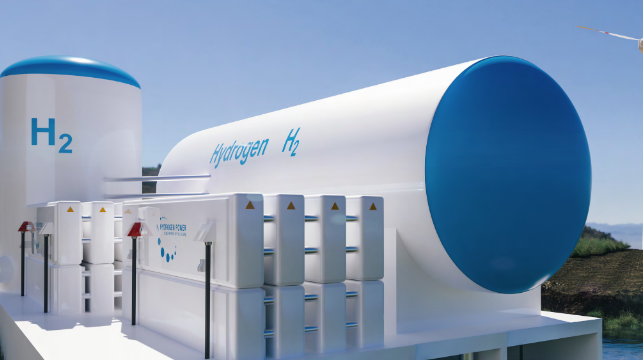Survey: Energy Industry Expects to Sell Hydrogen at Scale by 2030

DNV has issued a new research report on the future of the hydrogen economy, drawing on a survey of more than 1,000 energy professionals and interviews with top-level industry executives. The results suggest that the energy industry has confidence in hydrogen as a force in the market - a force worthy of investment.
About 84 percent of senior energy professionals surveyed said that hydrogen has the potential to be a major component of a global low-carbon energy system, and 73 percent said that the Paris Agreement targets will only be achievable with a large-scale hydrogen economy.
“To meet the targets of the Paris Agreement, the world needs to transition faster to a deeply decarbonized energy system. In addition to energy efficiency gains, this will require greater renewable power generation and electrification, and the scaling of technologies to remove the carbon from fossil fuels. Hydrogen will be needed to connect and enable these paths,” said Ditlev Engel, CEO of Energy Systems at DNV.
Most of the energy companies surveyed have only just begun their participation in the hydrogen value chain recently. For nearly half of them, hydrogen accounts for less than one percent of their organization’s revenue today. However, most expect that to change in the decade to come. 44 percent predict that H2 will account for more than a tenth of their revenue, and that figure rises to 73 percent by 2030.
However, energy professionals are aware of the significant challenges involved. Some 71 percent believe current hydrogen ambitions tend to underestimate the practical limitations and barriers, and fewer than half (43 percent) believe that the majority of national and organizational hydrogen goals are realistic.
Infrastructure, regulatory requirements and costs were identified as the biggest hurdles. The right regulations are deemed to be the most powerful enabler, particularly carbon pricing. Some 80 percent said that the hydrogen economy needs effective carbon-pricing regulations before it can scale up.
Most believe that existing infrastructure will have to be repurposed to meet the logistical needs of hydrogen production and distribution. This includes repurposing natural gas to produce hydrogen via steam reformation and carbon capture ("blue hydrogen"), which could help the market scale up while renewable sources come online.
Opinion on the structure of the market is split. 42 percent believe that the hydrogen trade will be a global commodity market, while 52 percent believe it will be primarily regional. 43 percent believe that it will be a heavily-regulated, predictable market like electricity, while 41 percent think that it will be a market-driven free-for-all like the trade in oil and gas.
